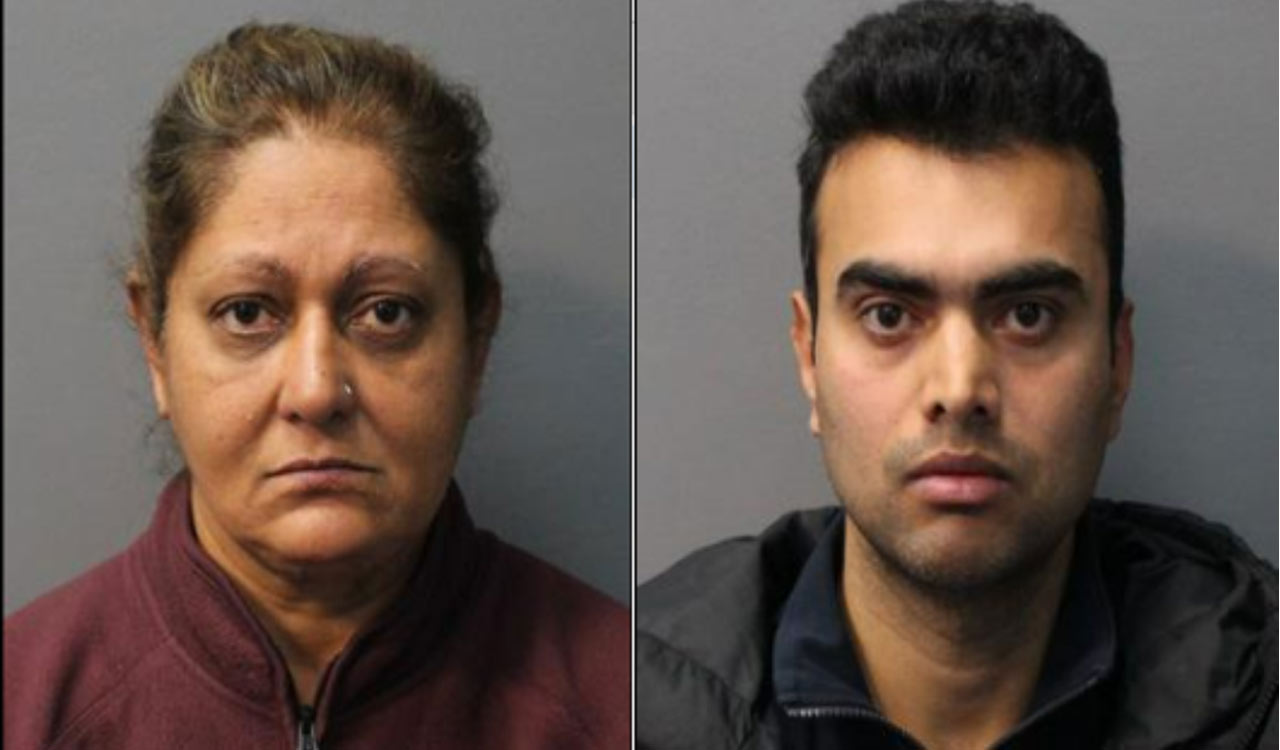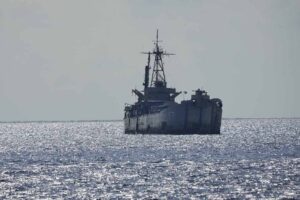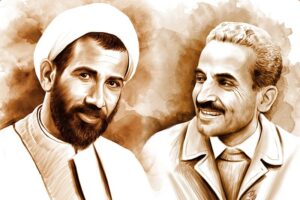On Monday, Arti Dhir, 59, and Kavaljitsinh Raijada, 35, were convicted of 12 counts of exportation and 18 counts of money laundering, following India’s extradition request for their alleged involvement in the murder of their adopted son in Gujarat.
Updated On – 31 January 2024, 09:27 AM

London: An Indian-origin couple has been sentenced to 33 years in prison each after exporting more than half a tonne of cocaine to Australia.
Arti Dhir, 59, and Kavaljitsinh Raijada, 35, whose extradition was sought by India on charges of the murder of their adopted son in Gujarat, were convicted of 12 counts of exportation and 18 counts of money laundering on Monday.
During a trial at the Southwark Crown Court on Monday, Prosecutor Hugh French likened the modus operandi of the couple to crime dramas ‘Ozark’ and ‘Breaking Bad’.
“It’s like something out of Breaking Bad or Ozark,” French said, describing the “ruthless and greedy” pair as “very different from the average married couple”.
“It was not the 25-year age gap that was different — it was the fact that they operated in the world of international organised crime,” he was quoted as saying by Sky News.
Dhir and Raijada were identified by National Crime Agency (NCA) investigators after the Australian Border Force intercepted the cocaine upon its arrival in Sydney in May 2021.
The drugs had been shipped via a commercial flight from the UK and consisted of six metal toolboxes which, when opened, were found to contain 514 kilos of cocaine.
Officers traced the consignment back to Dhir and Raijada, who had set up a front company called Viefly Freight Services with the sole purpose of smuggling drugs.
Both defendants had been directors of the company at different points since its incorporation in June 2015, the NCA said in a statement released on Monday.
Raijada’s fingerprints were found on the plastic wrappings of the metal toolboxes containing the seized drugs, while receipts for the order of the toolboxes, worth 2855 pounds, were discovered at the couple’s home.
The NCA claimed that there had been 37 consignments sent to Australia since June 2019, of which 22 were dummy runs and 15 contained cocaine.
According to the crime agency, their knowledge of the airport freight procedures — with both of them having worked for a flight services company at Heathrow — was used to cover their criminal activities.
“Arti Dhir and Kavaljitsinh Raijada used their insider knowledge of the air freight industry to traffic cocaine worth tens of millions of pounds from the UK to Australia, where they knew they could maximise their revenue,” Piers Phillips, NCA Senior Investigating Officer, said.
“They kept their illicit profits in cash at their home and in storage units, as well as purchasing property, gold and silver in an attempt to hide their wealth. These defendants may have thought they were removed from the misery caused by the drugs trade but their greed was fuelling it,” Phillips added.
Dhir and Raijada were arrested at their home in Hanwell on June 21, 2021.
A search of their premises led to 5000 pounds worth of gold-plated silver bars, 13,000 pounds inside the home and 60,000 pounds in cash in a safety deposit box.
Financial inquiries found they had also purchased a flat in Ealing for 800,000 pounds and a Land Rover for 62,000 pounds, despite declaring profits of only a few thousand pounds to HMRC (His Majesty’s Revenue and Customs).
Investigations showed that both defendants held cash in bank accounts which far exceeded their declared income.
They had deposited almost 740,000 pounds in cash into 22 different bank accounts since 2019 and were further charged with money laundering.
India had sought the couple’s extradition in 2017 for the alleged murder of their 11-year-old adopted son, Gopal Sejani, in Gujarat.
However, the request was turned down by Westminster Magistrates’ Court in London in July 2019 on human rights grounds, according to media reports
The Gujarat police said in its investigations that the pair had adopted Gopal, before staging his kidnapping and murder in India to split the life insurance payout of Rs 1.3 crore.




